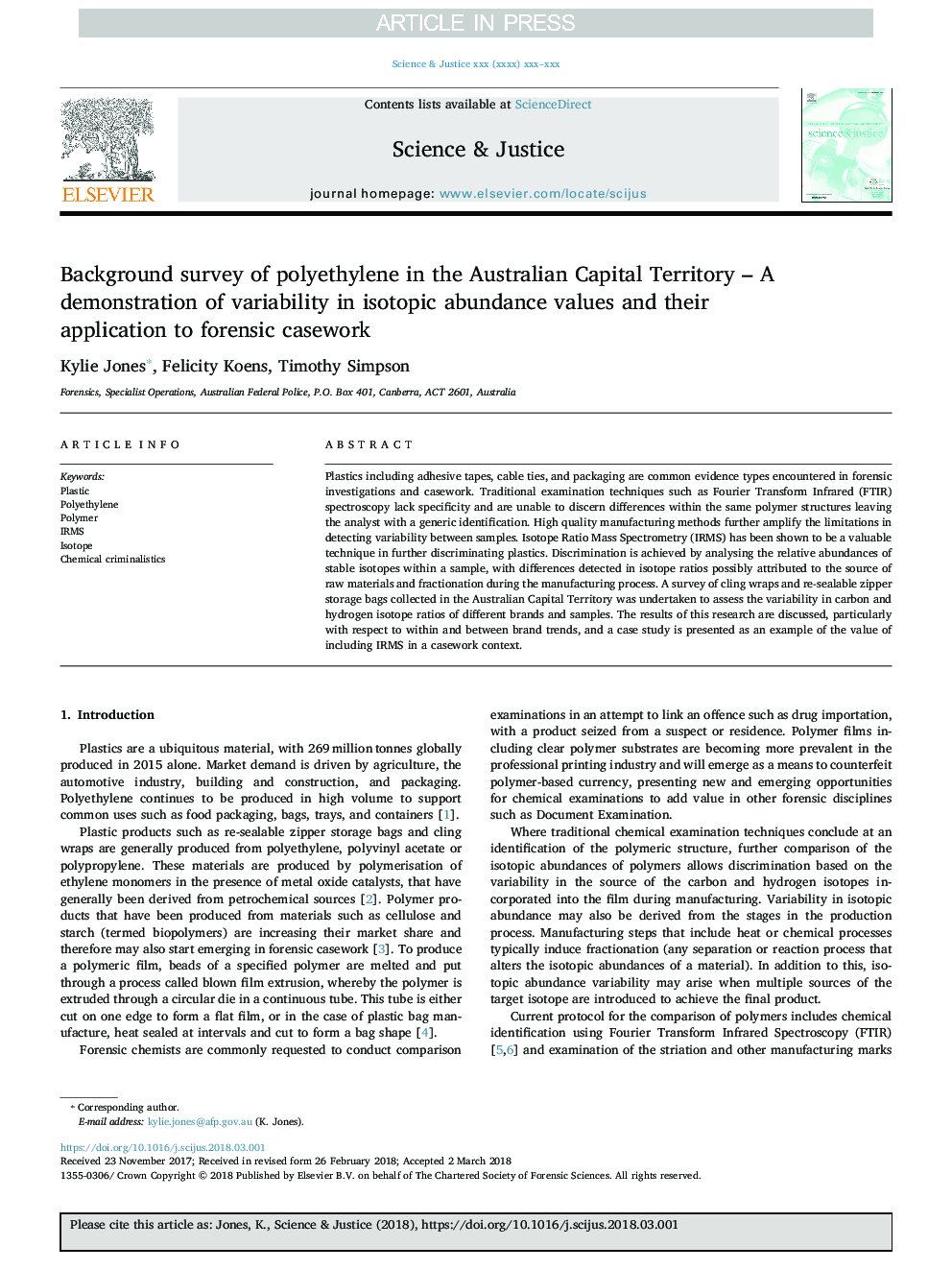| Article ID | Journal | Published Year | Pages | File Type |
|---|---|---|---|---|
| 6555876 | Science & Justice | 2018 | 6 Pages |
Abstract
Plastics including adhesive tapes, cable ties, and packaging are common evidence types encountered in forensic investigations and casework. Traditional examination techniques such as Fourier Transform Infrared (FTIR) spectroscopy lack specificity and are unable to discern differences within the same polymer structures leaving the analyst with a generic identification. High quality manufacturing methods further amplify the limitations in detecting variability between samples. Isotope Ratio Mass Spectrometry (IRMS) has been shown to be a valuable technique in further discriminating plastics. Discrimination is achieved by analysing the relative abundances of stable isotopes within a sample, with differences detected in isotope ratios possibly attributed to the source of raw materials and fractionation during the manufacturing process. A survey of cling wraps and re-sealable zipper storage bags collected in the Australian Capital Territory was undertaken to assess the variability in carbon and hydrogen isotope ratios of different brands and samples. The results of this research are discussed, particularly with respect to within and between brand trends, and a case study is presented as an example of the value of including IRMS in a casework context.
Related Topics
Physical Sciences and Engineering
Chemistry
Analytical Chemistry
Authors
Kylie Jones, Felicity Koens, Timothy Simpson,
